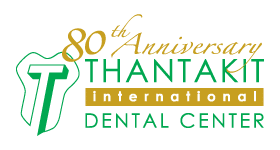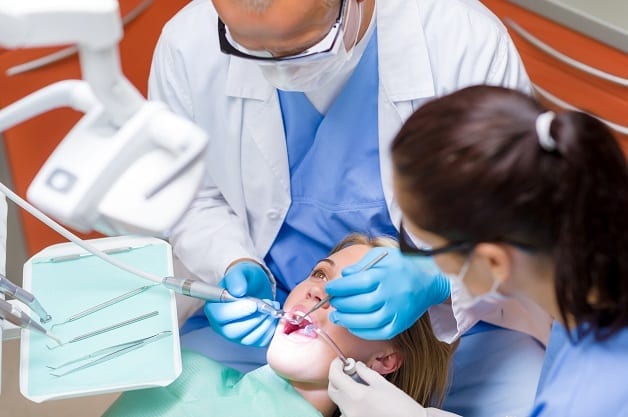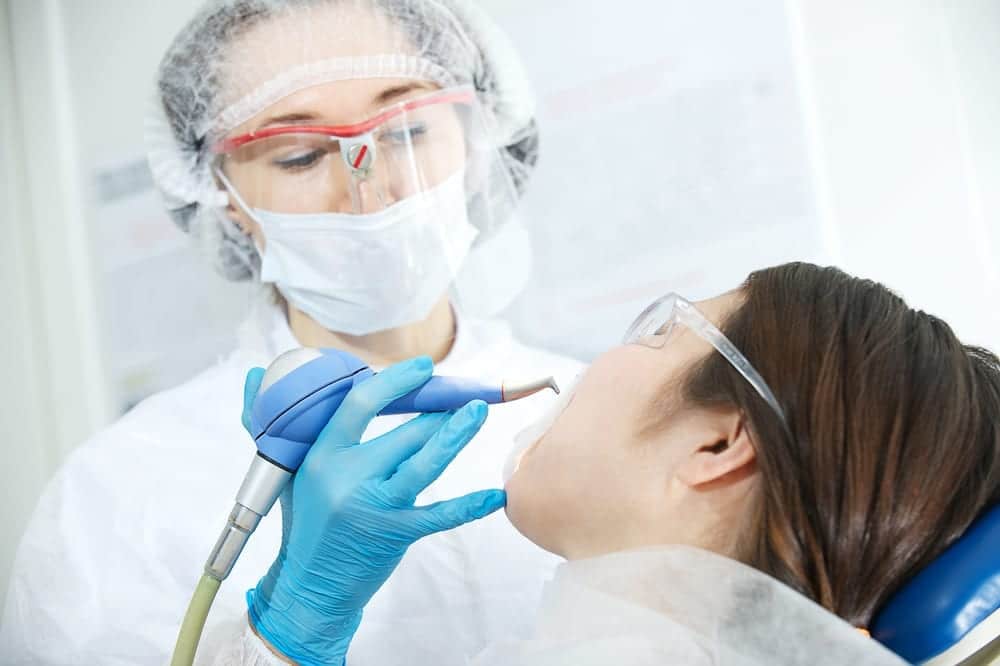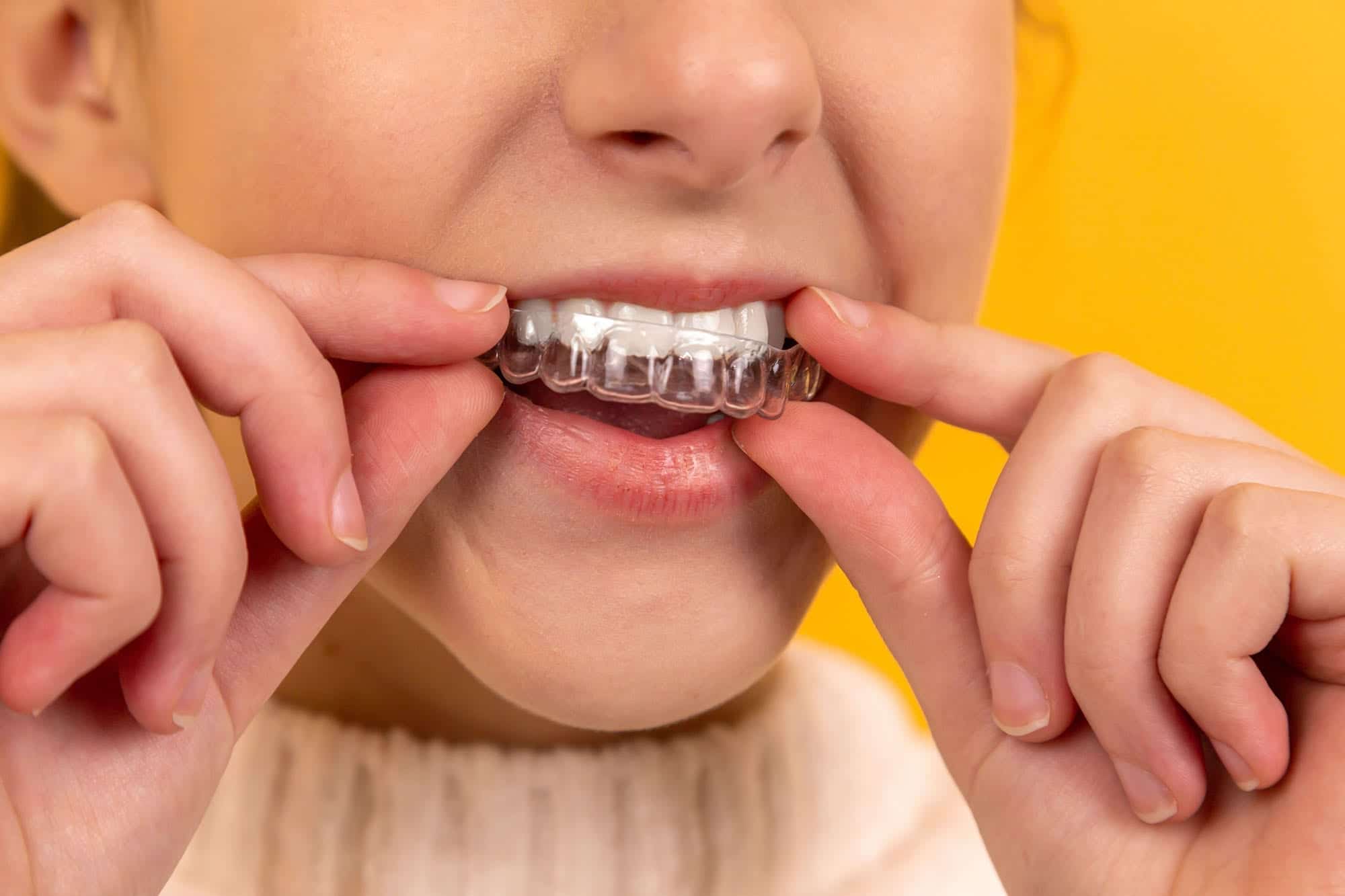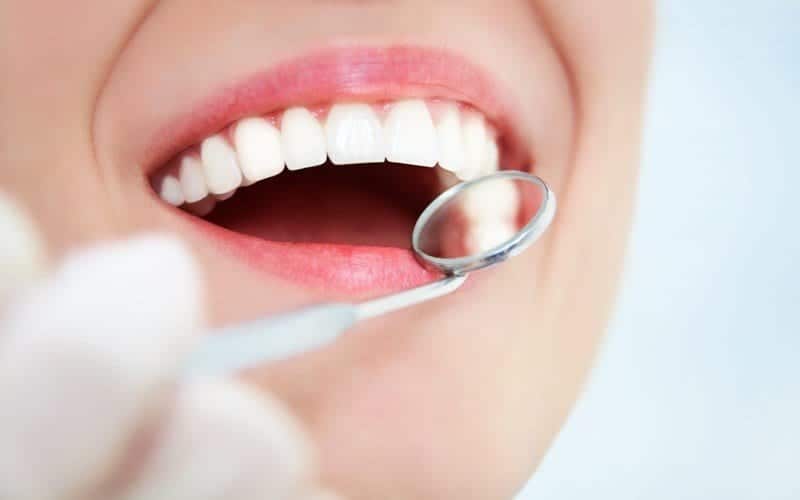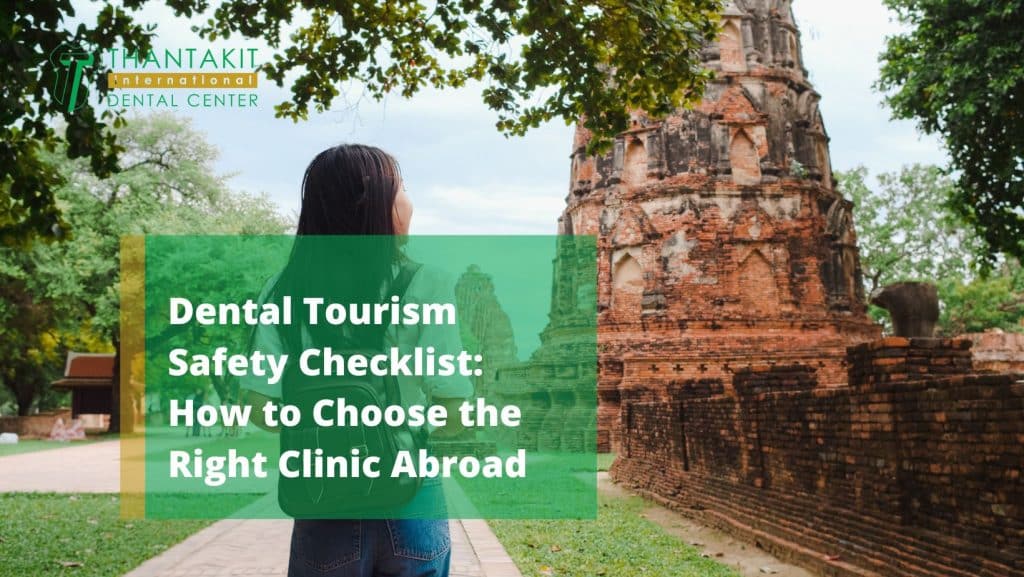Dental tourism has been gaining traction, especially in countries like Thailand, where affordable costs and advanced care attract travelers from all over the world. I see many people drawn by the promise of low prices for dental implants, veneers, and other procedures.
However, while the idea of combining a dental visit with a vacation might sound tempting, ensuring your safety and quality of care should lead every decision. For me, peace of mind matters more than price alone. I look at clinics that can demonstrate high standards, solid expertise, and consistent patient trust.
Page Contents
Why Safety Should Be Your Top Priority in Dental Tourism
Traveling abroad for dental treatment can look like a great way to save money. Still, without the right safeguards, it’s easy for things to go sideways. I’ve seen cases where someone was lured by extremely low rates but ended up with poor hygiene, botched treatments, or infections due to unqualified personnel.
Those savings disappear quickly if you have to fix problems back home. When choosing a clinic, it’s worth prioritizing facilities that uphold strict sterilization protocols, honest communication, and transparency in what they offer. Cost matters, but proper hygiene, clear qualifications, and aftercare are even more important. Taking time to verify these areas makes a big difference to my health and long-term results.
The Dental Tourism Safety Checklist
Finding the right dental clinic abroad is all about asking the right questions and verifying details before making your decision. This practical checklist covers each area I examine when selecting a safe and trustworthy dental clinic in Thailand or anywhere else.
Accreditation and Licensing. A quick look at the clinic’s official registration with the Thai Ministry of Public Health is essential. This ensures the clinic is legally authorized to operate and meets Thailand’s health and safety standards.
To verify clinic licensing, visit the official page of the Thai Ministry of Public Health: https://dental.anamai.moph.go.th/
Confirming the clinic is listed or registered here provides confidence in its legal status and operational standards in Thailand.
Dentist Qualifications. You can verify whether the dentists have postgraduate training and whether they have international experience or memberships in professional dental organizations. Seeing that a clinic employs specialists, not just general practitioners, builds confidence.
Hygiene and Sterilization. Effective sterilization is nonnegotiable. It’s worth confirming they use autoclaves for instrument sterilization, follow single-use policies for needles and other supplies, and maintain clear protocols to prevent cross-contamination. Cleanliness in the clinic’s public areas also tells me a lot about their attitude toward hygiene.
Transparent Pricing. Knowing the total, detailed costs before traveling protects me from nasty surprises. I always ask for a written treatment plan, including all fees, so I can budget and compare options fairly.
Language Support. Communication has to be clear. A good approach is ensuring that the clinic can communicate fluently in English (or my preferred language) and that official translators or bilingual staff are available during my treatment.
Modern Technology. Advanced diagnostic and treatment tools such as CBCT (Cone Beam Computed Tomography), CAD/CAM crowns, 3D guided implant systems, and digital X-rays are standard in high-quality clinics. These tools not only improve accuracy but also support better outcomes.
Aftercare and Follow-Up. Patients should expect support to continue after leaving the country. It’s worth confirming if the clinic offers remote check-ins by video or email, has clear instructions for care when I return home, and can connect with my local dentist if something goes wrong.
Reputation. Honest, independent reviews on platforms like Google, Dental Departures, or WhatClinic help me see the real patient experience. If testimonials sound too good to be true, I dig deeper.
Red Flags. I steer away from clinics advertising huge discounts without explanation, vague answers to my questions, poor communication, or those pushing me to book quickly before answering all my concerns.

Questions to Ask Before Booking Dental Treatment Abroad
To help make the best decision, I keep a set of straightforward questions for any clinic on my shortlist:
-
Who will perform my treatment, and what exactly are their qualifications?
-
What sterilization process do you follow for your instruments and operatory spaces?
-
If I need aftercare when I return home, how can I reach you, and do you support remote follow-up?
-
Can I receive a full, itemized written quote and treatment plan before I make travel arrangements?
-
How is emergency care handled if something needs urgent attention while I’m abroad?
-
Do you have patient coordinators who can help me with travel planning and language support?
Getting full, direct answers gives me peace of mind and helps avoid clinics that might hold back important information or offer vague responses.
Why Thailand and Thantakit Dental Center Set the Standard
Thailand has built a reputation for being a leading location in dental tourism. The country’s clinics often deliver Western-level quality at a more approachable price. The lower costs aren’t about cutting corners, but about efficiencies, lower general expenses, and strong competition.
Cities like Bangkok are home to clinics that look and feel just like top clinics in the US, Australia, or the UK. Thantakit International Dental Center serves as my go-to benchmark when looking at clinic standards in Thailand. Thantakit is fully licensed, follows ISO-level sterilization and safety protocols, uses a digital workflow for records and planning, provides clear pricing, and employs a multilingual team.
With more than 80 years of clinical history, this clinic offers a reassuring level of experience and professionalism. I can see patient stories, testimonials, and photos of actual cases, not just marketing claims. Whenever someone asks me where to start researching clinics for dental implants in Thailand or safe cosmetic dentistry, I refer them to quality clinics like Thantakit for comparison.
Prep Tips Before You Travel for Dental Care
My personal experience taught me that thoughtful planning before your dental trip is just as important as researching the clinic. Here are practical steps I recommend for making the most out of your dental tourism adventure:
Share your dental X-rays (recent ones, within the last year) and any history with the clinic ahead of your visit. This helps them build a proper treatment plan and gives you clear expectations before you even board the plane.
Ask for a full treatment plan and estimate in writing, including what’s included and what’s not. This covers medication, anesthesia, lab fees, and possible follow-up care.
Bring any regular medication you take, along with a list of allergies, medical conditions, and your insurance information.
Prepare some soft foods, like soup packs or shakes, especially if you’re having implants, extractions, or major work. Dental recovery can make chewing uncomfortable for a few days.
Schedule your treatment at the start of your trip, not the end, to allow time for follow-ups or adjustments before you fly home.
Plan your first few days for more rest instead of packed sightseeing. Give your body time to recover after surgery or major dental treatment.
Stay in touch with your dental team after returning home, especially for implant or cosmetic work that may need further checks later. Most reputable clinics will offer remote follow-up by email or video call.

Fast Reference: What to Double-Check Before Choosing a Provider
-
Check dentist and clinic credentials against both local and international registries.
-
Evaluate sterilization procedures, ask direct questions and look for evidence of modern autoclaves and single-use tools.
-
Look for recent reviews and independent testimonials from previous patients, not just what the clinic publishes.
-
Ask for clear, written treatment plans and transparent pricing to avoid hidden costs.
-
Confirm that aftercare and remote check-ins are available if you return home early or need urgent help.
-
Avoid clinics that refuse to answer questions, do not display credentials, or pressure you to book quickly.
-
Prioritize experience, real results, and genuine patient care. Paying the lowest price is less important than getting safe, reliable work.
Common Mistakes and How to Avoid Them in Dental Tourism
Many people make the same mistakes that could be easily avoided with a little more planning. From my own research and speaking with past patients, these are the most common missteps I see, as well as how to steer clear of them.
Skipping Proper Research. Spending extra time comparing clinics and reading independent reviews before choosing helps minimize risk and expense down the road.
Chasing the Lowest Offer. The cheapest quote can sometimes hide cut corners or unexpected add-ons. Patients should always ask what exactly is included and get everything in writing.
Assuming All Dentists Are Similarly Qualified. Qualifications and experience vary widely. A good approach is looking for postgraduate qualifications, ongoing training, and international conference participation.
Ignoring Aftercare Planning. It’s crucial to clarify exactly how aftercare or emergency support will work, especially if you’re traveling soon after your procedure.
Overlooking Communication Barriers. Clear communication is essential. Patients should verify that staff speak their preferred language or that proper translators are available, especially for detailed consent or medical questions.
Not Planning for Recovery Time. Booking sightseeing tours right after major surgery is a mistake many travelers make. Allowing for downtime reduces stress and helps ensure successful healing.

How Professional Standards Make a Real Difference
The best clinics take their role as healthcare providers seriously, with patient safety as the core value. Facilities like Thantakit Dental Center are open about their sterilization processes, employ highly trained staff, and willingly show you their credentials or international certifications. Clinics that invest in technology and ongoing staff training consistently produce better, safer outcomes.
Transparency is also huge for me. From the first email, I look for clear, straightforward answers, no surprises and no evasiveness. When I receive written treatment plans, see proof of certifications, and get quick, helpful responses, I know I’m dealing with professionals. This kind of assurance is especially valuable when looking at something as important as dental implants in Thailand, where a long-term result depends entirely on the right care and follow-through.
The Benefits of Dental Tourism When Done Safely
I see many patients able to combine a healthy, confident smile with a travel experience. Cost savings can be significant when choosing clinics with a strong track record. But even when saving money, patients should never sacrifice safety, results, or peace of mind.
Clinics like Thantakit Dental Center provide state-of-the-art dentistry, clear international standards, and personal care. Going abroad can also allow access to treatments or specialists that may have longer waits or higher costs at home.
Many international dental clinics are experienced in serving travelers and offer comfortable English-language support, including helping with travel logistics and aftercare coordination. When making careful choices, researching thoroughly, and focusing on providers with strong reputations, dental tourism can be a rewarding experience. You can return home with a confident smile, good health, and great stories, all while managing costs and enjoying a new destination.
Frequently Asked Questions about Dental Tourism Safety
Here are some of the questions I most often hear from people planning their first dental trip abroad, along with practical answers.
Question: What if something goes wrong after I come home?
A good approach is selecting clinics with clear aftercare policies and who offer remote support if something needs attention. Keep copies of your treatment plan, receipts, and any communication with the clinic. Staying connected with your local dentist also helps with follow-up care if needed.
Question: How do I plan for language differences?
It’s worth confirming that the clinic offers staff fluent in your preferred language (usually English) and has translators available as needed. Good communication is essential for both treatment and consent. Avoid clinics that can’t provide this.
Question: Are dental implants in Thailand safe?
When performed in highly rated clinics with fully qualified staff and modern technology, dental implants in Thailand meet the same safety standards as in Western countries. Patients should always verify the training and certification of the implantologist, the technology used, and look for aftercare support.
Question: Is my dental insurance valid abroad?
Many global insurance providers offer limited dental tourism coverage. Contact your insurer directly to find out whether treatment abroad is covered, or if policies like medical complication insurance can be added.
How to Get Started: Taking the First Step Safely
Getting started with dental tourism is all about smart planning and trusted connections. I always recommend booking a virtual consultation with the clinic before traveling. This first appointment lets me meet the dentist, review my records, discuss treatment plans, and get a feel for how the clinic operates. This step costs little or nothing at most clinics and helps me avoid last-minute risks.
If you’re exploring your options for dental care in Thailand, I suggest starting with a conversation at a benchmark clinic. Thantakit Dental Center offers remote consults, clear English communication, and thorough, patient-focused planning. Booking a virtual appointment is the easiest way to get honest advice and build your travel plan around real needs and timelines, not just a price tag.

Dental Tourism Safety Checklist: Summary for Your Trip
-
Confirm clinic licensing with screenshots or links, and look for international certifications where possible.
-
Check dentist credentials: advanced degrees, memberships, and overseas training are all positive signals.
-
Ask about autoclaves, single-use tools, and cleaning protocols. Don’t just take word of mouth, but look for visual proof.
-
Request a detailed estimate, with everything in writing, including lab work, anesthesia, and follow-up.
-
Get details on aftercare, including remote support by email or video call, and what help you can get back home.
-
Stick with clinics who are responsive to your questions, not just those with the cheapest offer.
-
Always prioritize health, skill, and transparency. If you don’t feel fully informed or welcome, keep looking.

Choosing a trustworthy clinic abroad comes down to careful research, reliable communication, and honest feedback from others. Thailand, and clinics like Thantakit Dental Center, offer a great benchmark for what safe, patient-centered care really looks like in the world of dental tourism.
When following this checklist and listening to your instincts, you can focus on the positive side of dental travel, achieving the results you want while enjoying peace of mind. For the best lead into a safe and affordable treatment adventure, contact Thantakit International Dental Center today and start your dental journey with confidence, clarity, and the safety you deserve.
